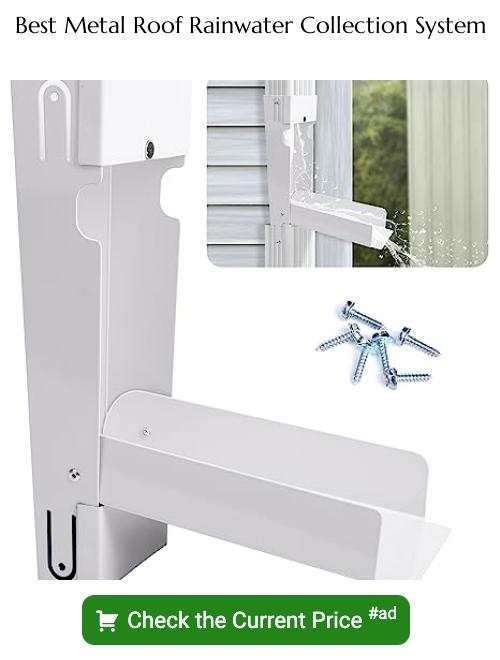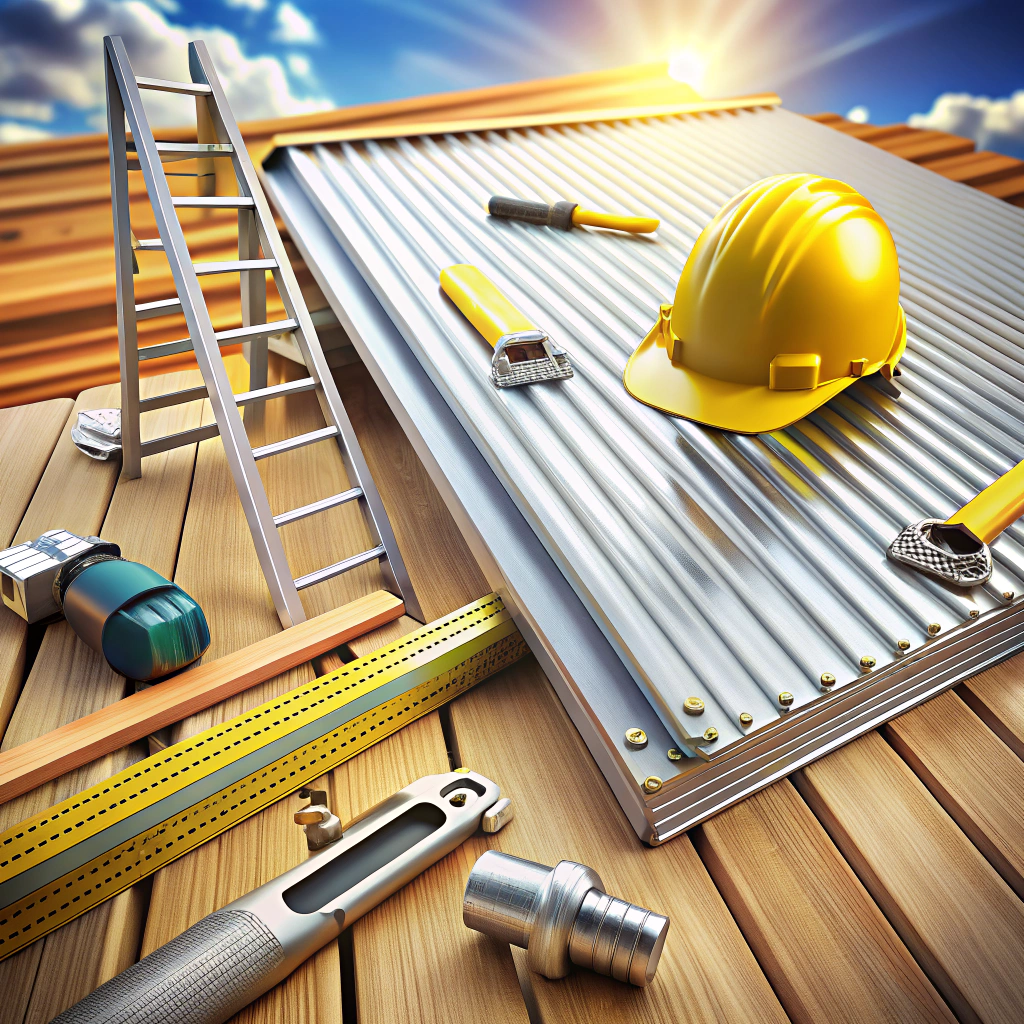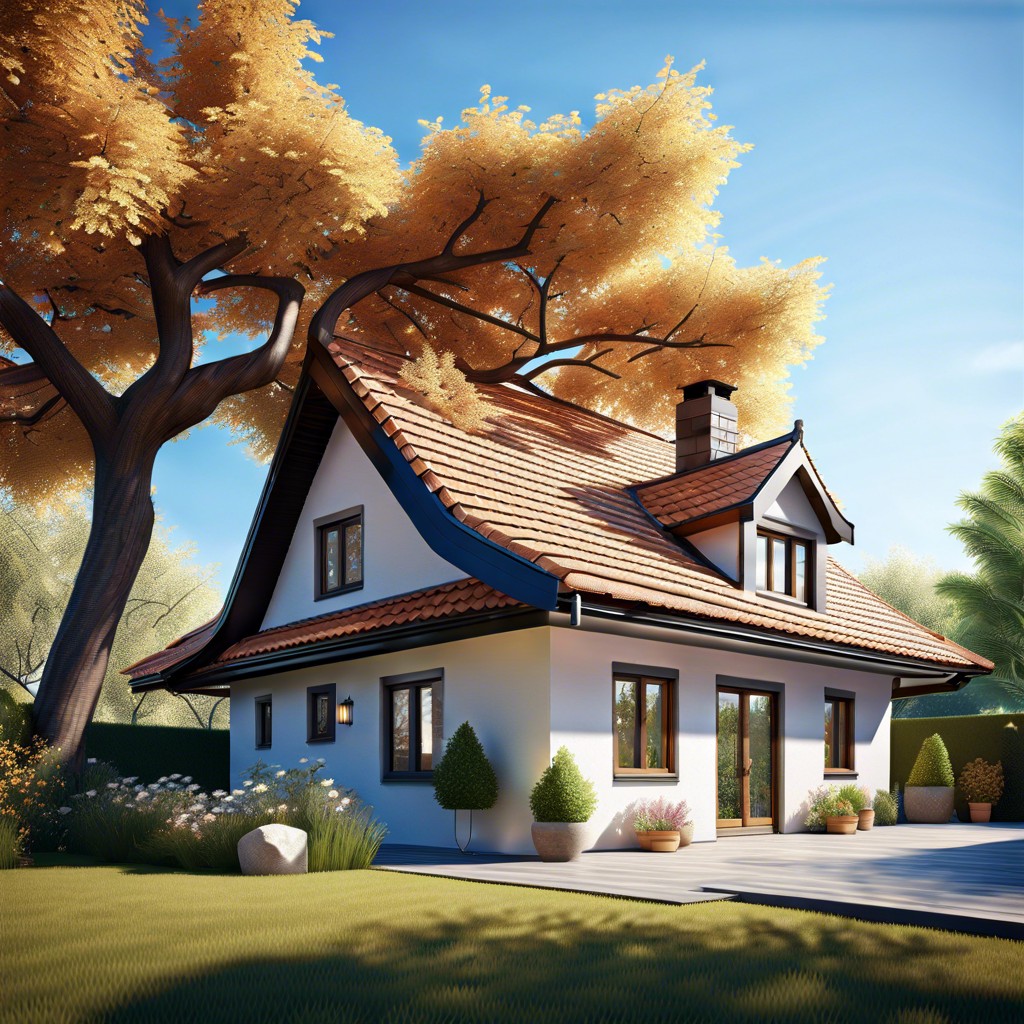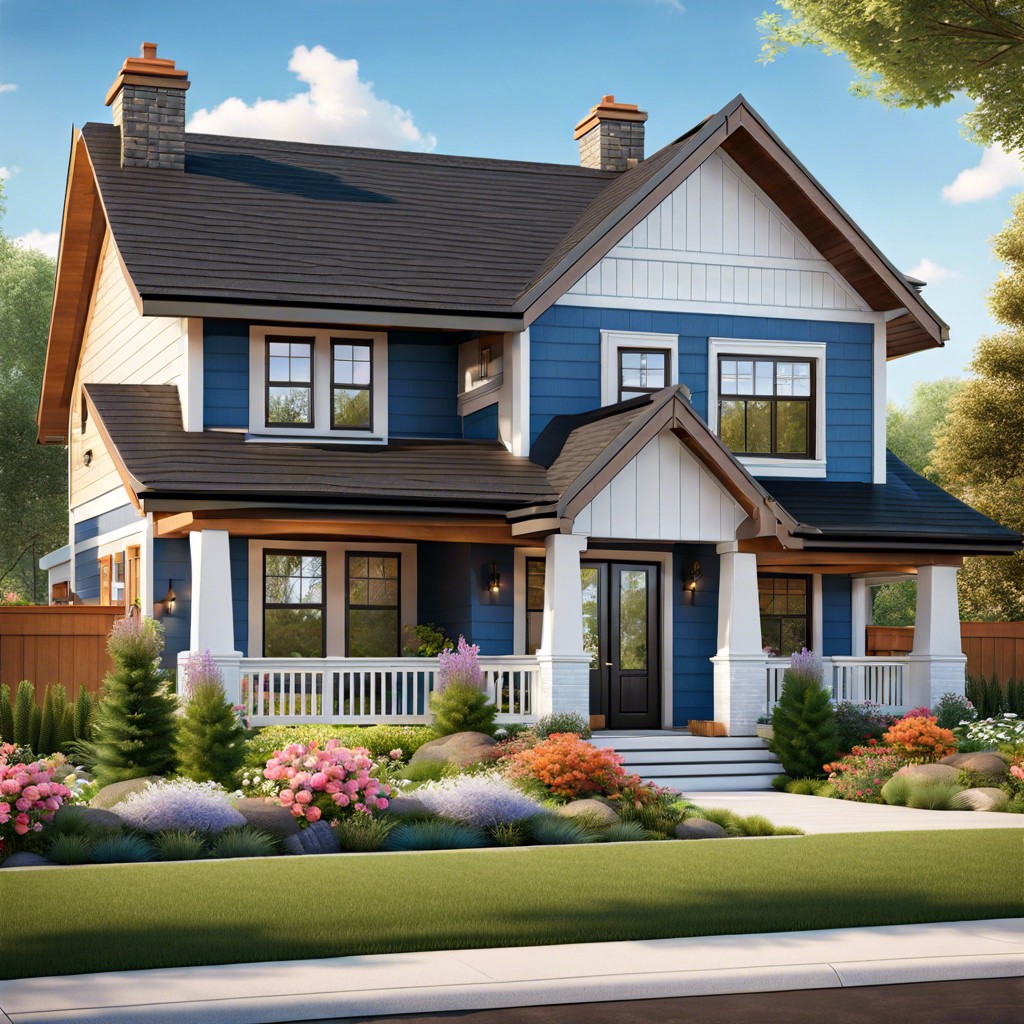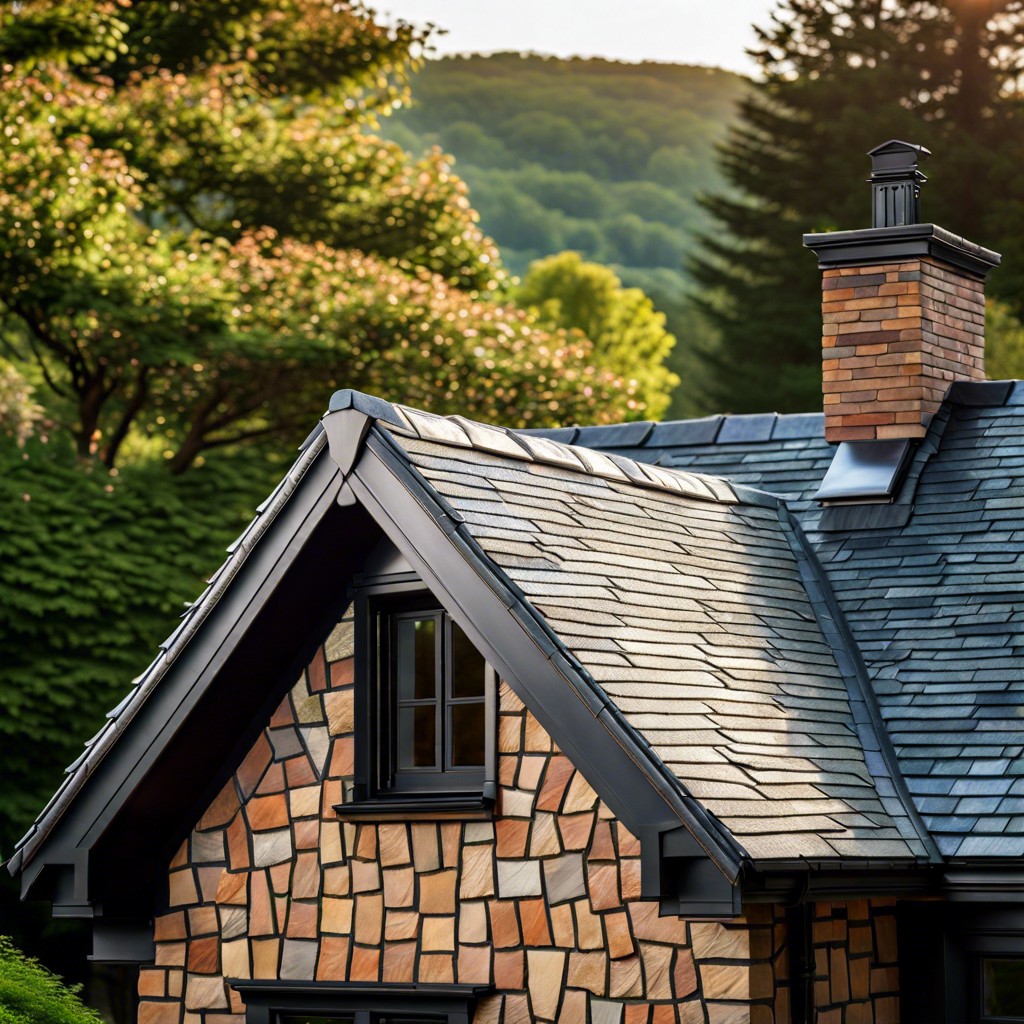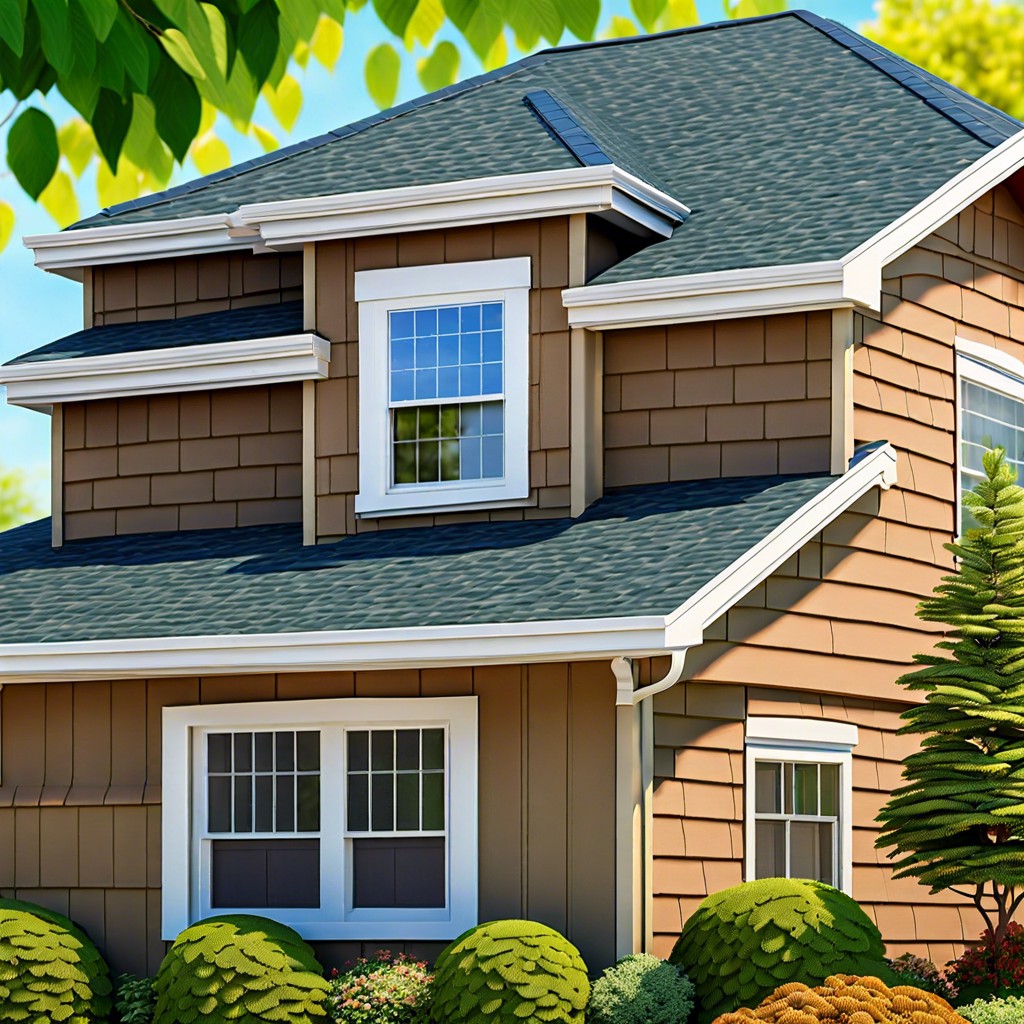Last updated on
Exploring the various types of metal roofs in Florida becomes vital because their durability, elemental resistance, and energy efficiency greatly differ.
Key takeaways:
- Metal roofs in Florida are durable, fire-resistant, and energy-efficient.
- Standing seam roofs have enhanced durability and weather resistance.
- 5V metal roofs are cost-effective and offer effective water shedding.
- Aluminum roofs are lightweight, corrosion-resistant, and flexible in design.
- Galvalume roofs offer corrosion resistance and thermal efficiency.
The Best Types of Metal Roofs for Floridians
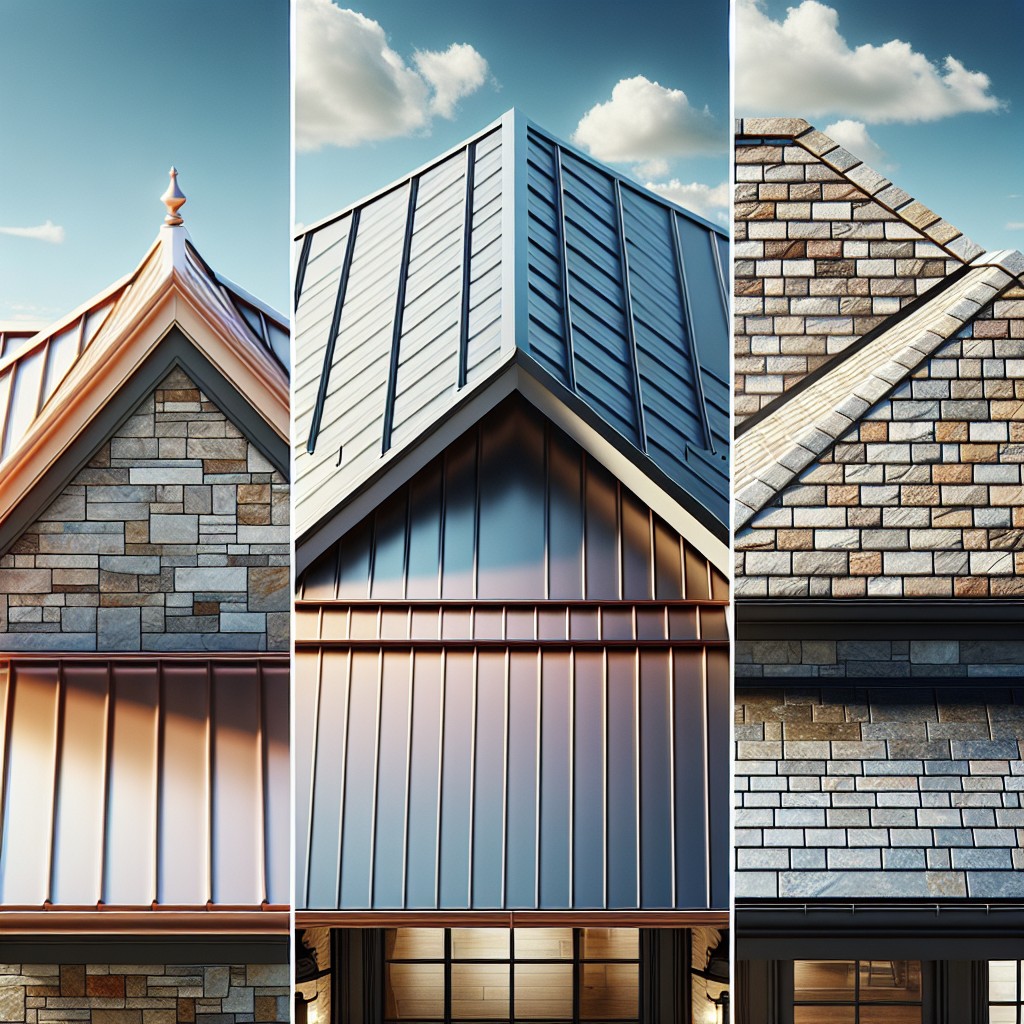
Florida’s climate necessitates roofing materials that can withstand extreme weather conditions, from high winds and torrential rains to intense sun exposure. Among the top choices for durability and longevity, metal roofs stand out for their resilience. They are non-combustible, making them highly fire-resistant, an important consideration in areas susceptible to wildfires. Furthermore, their reflective properties contribute to energy efficiency by deflecting sunlight, which can reduce cooling costs.
When selecting a metal roof, it’s advisable to consider both the material and design to ensure it meets local building codes and insurance requirements, particularly for wind and impact resistance.
Standing Seam Roof
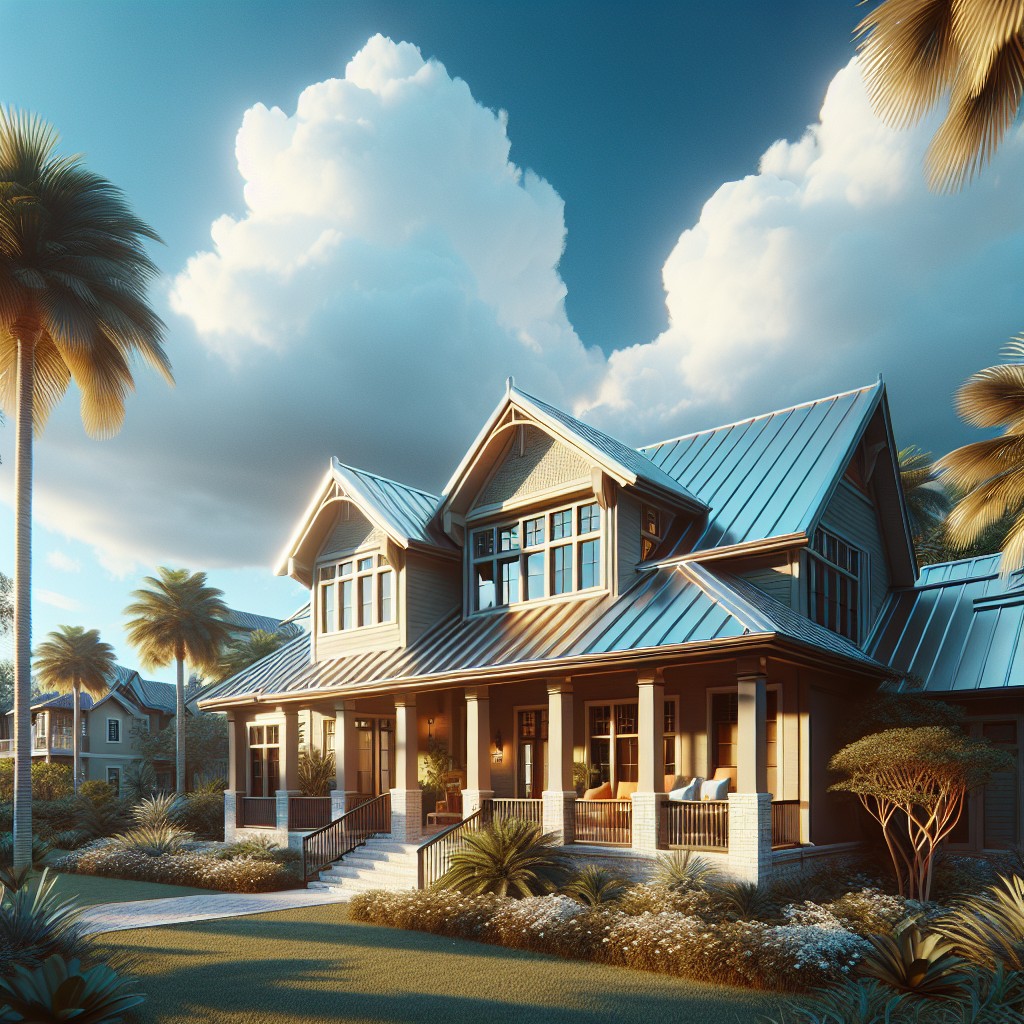
Standing seam roofs offer a modern, sleek aesthetic that’s increasingly popular among homeowners in Florida. This type of metal roof features continuous panels running from the ridge of the roof all the way down to the eaves. The seams between panels are raised above the level of the roofing itself, which is where the term “standing seam” comes from. This design helps to securely lock out moisture, an essential feature in Florida’s often wet and windy climate.
Some key points about standing seam roofs include:
- Enhanced Durability: Thanks to the concealed fasteners and the absence of horizontal seams, standing seam roofs have a reduced risk of leaking compared to other metal roofing styles.
- Improved Aesthetics: The clean lines of standing seam roofs complement a wide range of architectural styles, from traditional to contemporary.
- Higher Cost: The durability and aesthetic appeal of standing seam roofing typically come with a higher price tag relative to other metal roofing options.
- Energy Efficiency: With the correct finish, a standing seam metal roof can reflect solar radiant heat, which helps to reduce cooling costs during Florida’s hot summers.
- Weather Resistance: These roofs are not just watertight but also capable of withstanding high winds, making them ideal for the hurricane-prone regions of Florida.
- Longevity: Standing seam metal roofs can last up to 50 years or more with proper maintenance, significantly longer than traditional asphalt shingle roofs.
This roofing option, though initially more costly, offers long-term benefits in durability and energy savings, making it a worthy investment for Florida residents.
5V Metal Roof
5V metal roofing, easily recognized by its characteristic “V” shaped crimping, is a staple in Florida’s coastal areas due to its resilience and traditional appeal.
This cost-effective option is manufactured in large, lightweight sheets, making installation quicker and reducing labor costs.
The crimped design not only contributes to the metal’s durability, allowing it to withstand high winds, but also provides effective water shedding, a critical feature in Florida’s rainy climate.
The 24-inch panels are typically galvanized steel or Galvalume coated, enhancing their resistance to corrosion and UV damage from the intense Floridian sun.
Additionally, 5V metal roofing can be finished with a variety of coatings that reflect heat, significantly reducing cooling costs for homeowners.
Despite its simpler installation process compared to other metal roofing systems, professional installation is essential for ensuring the longevity and effectiveness of a 5V roof, particularly in sealing the seams to prevent leaks.
Aluminum Roofs
Aluminum is a lightweight yet strong material ideally suited for Florida’s coastal climates. Its inherent properties resist corrosion, a common issue in humid, salt-laden air, making it an excellent choice for longevity.
Additionally, the material’s reflective nature contributes to energy efficiency by deflecting sunlight and reducing cooling costs. With its flexibility, aluminum can be shaped into various styles, including tiles and shingles, offering aesthetic versatility to complement any architectural design.
When professionally coated, aluminum can mimic the appearance of traditional roofing materials, such as wood shake, while still providing the endurance of metal. Due to the state’s stringent building codes for wind uplift resistance, aluminum roofing systems are often designed to meet, if not exceed, these requirements, reinforcing their suitability for hurricane-prone areas.
Galvalume Roofs
Galvalume is a coated metal alloy comprising 55% aluminum, 43.4% zinc, and 1.6% silicon. This composition is applied to steel sheeting, combining the corrosion resistance of aluminum with the galvanic protection of zinc. The result is a durable, versatile, and economical roofing material particularly suited to Florida’s climate.
This type of roof offers a number of advantages for homeowners in Florida, including:
- Corrosion Resistance: The aluminum in the coating provides a tough layer to guard against the salty sea air that can often corrode other materials.
- Thermal Efficiency: It reflects the sun’s rays better than traditional asphalt shingles, which in turn may help reduce cooling costs.
- Longevity: These roofs can last 40 to 60 years with proper installation and maintenance, outperforming many conventional roofing materials.
Installation should always be carried out by a professional, as the sheets require careful handling to prevent damage to the coating. It’s also essential for Florida residents to ensure their Galvalume roofing is properly secured to withstand high winds during hurricane season.
Minimal maintenance is required, typically involving periodic inspections and removal of debris. It’s important to note that while the material is resistant to rust, scratches or cuts in the coating could lead to corrosion if not corrected promptly. The metal’s finish can be left bare or painted, providing additional protection and aesthetic versatility.
Weather Resistance of Metal Roofs in Florida
Metal roofs offer superior protection against Florida’s unique climate conditions. Here’s how:
- Hurricane Resilience: The interlocking design of metal panels provides exceptional wind resistance, often withstanding gusts up to 140 mph, which is crucial in a state prone to hurricanes.
- Heat Reflectivity: Metal roofs reflect solar radiant heat, helping maintain cooler indoor temperatures during Florida’s hot, sunny weather and potentially reducing cooling costs.
- Fire Safety: In the event of lightning strikes or wildfires, metal roofs do not ignite, offering an extra layer of safety.
- Longevity in High Humidity: Metal roofs resist corrosion and damage caused by Florida’s high humidity and salt air, especially when treated with protective coatings.
- Rain and Storm Management: The surfaces of metal roofs facilitate fast water runoff, minimizing leaks and water damage during heavy rainstorms common in Florida.
Metal Roofing Fastening Systems: Exposed Vs. Hidden Fasteners
Exposed fasteners are commonly found in agricultural or industrial metal roofing systems due to their cost-effectiveness and ease of installation. These fasteners penetrate the metal roofing panels and are visible on the surface, hence the term “exposed.” While they do offer a straightforward approach to installation, they may require more maintenance over time. The protective washer that provides a seal around the screw can degrade, potentially leading to leaks if not routinely checked and replaced when necessary.
Hidden fasteners, or concealed fastener systems, offer a cleaner look with fasteners that are not visible on the roof’s surface. These systems typically involve interlocking panels that are secured to the roof deck or structure. The absence of exposed screws reduces the risk of leaks and minimizes maintenance needs. Hidden fastener systems are often considered more aesthetically pleasing and can enhance a property’s curb appeal—important considerations for residential properties.
When choosing between the two, consideration must be given to aesthetics, budget, and the willingness to commit to maintenance. Both systems have their merits, and the right choice can depend on the specific needs and preferences of a Florida homeowner.
Benefits of Metal Roofs in Florida
Metal roofs offer Floridian homeowners a host of advantages, from their durability to energy efficiency. The intense sun and occasional severe weather events that characterize Florida’s climate make metal roofing materials particularly suitable.
Firstly, metal roofs are known for their longevity, with life expectancies that can exceed 50 years, far outlasting traditional asphalt shingle roofs. This durability is critical in a state where the weather can be harsh and unpredictable.
Secondly, metal roofs can reflect solar radiant heat, which can help reduce cooling costs by 10-25%. The natural insulation properties of metal also contribute to improved energy efficiency, a boon in a state like Florida where air conditioning is a near-constant necessity.
Thirdly, when considering resistance to the elements, metal roofs stand up exceptionally well against hurricane-force winds, which is essential for buildings in a hurricane-prone region. They also don’t corrode or crack, and some metal roofs are impact-resistant.
Moreover, metal roofs are environmentally friendly. They are often made from recycled materials and are themselves fully recyclable at the end of their long life cycle, making them a sustainable choice for eco-conscious homeowners.
Lastly, metal roofs don’t require as much maintenance as other roofing materials, which translates into long-term cost savings and less hassle for the homeowner. This low maintenance requirement is especially valued in Florida, where high humidity levels can increase the wear and tear on other types of roofs.
Challenges With Metal Roofs in Florida
While metal roofs offer durability and energy efficiency, certain challenges should be considered by Florida homeowners:
1. Corrosion: Coastal environments increase the risk of corrosion due to salt-laden air. Selecting corrosion-resistant materials like aluminum or properly coated steel is essential.
2. Denting: Hail and falling debris can cause dents in softer metals. It’s important to choose metal roofs with good impact resistance ratings.
3. Installation Quality: Proper installation is critical to withstand Florida’s severe weather, including hurricanes. Ensure installation by experienced professionals.
4. Expansion and Contraction: Florida’s temperature variations cause metal to expand and contract, potentially affecting the roof’s structural integrity. Roofs must be designed to accommodate this movement.
5. Noise: During heavy rain or hail, metal roofs can be noisier than other materials. Insulation and proper attic space can mitigate the sound.
6. Cost: Initially, metal roofing can be more expensive than other options. Consider this an investment into the longevity and resilience of your roof.
Comparison of Metal and Spanish Tile Roofing for Florida Homes
When deciding between metal and Spanish tile roofing for a home in Florida, it is important to consider various factors such as durability, cost, and energy efficiency.
Durability: Metal roofs are known for their exceptional durability and long lifespan, often outlasting Spanish tile roofs. They can withstand high winds and are less prone to cracking under impact. Conversely, Spanish tiles, though durable, can be more fragile and susceptible to breakage.
Weight: Spanish tiles are heavier than metal roofing materials and may require additional structural support. Metal roofs offer a lightweight alternative that will not place the same level of stress on a home’s structure.
Installation: Metal roofing typically involves a faster and less labor-intensive installation process than Spanish tile. This can result in lower labor costs and quicker completion times.
Aesthetics: Spanish tiles offer a traditional, classic look that is popular in Floridian architecture. Meanwhile, metal roofs provide a sleek, modern appearance with a variety of color options that can mimic other materials, including Spanish tile.
Energy Efficiency: Metal roofs reflect solar radiant heat, helping to keep homes cooler and reduce cooling costs. Spanish tiles have thermal mass that can offer natural insulation, but they may not provide the same level of energy efficiency as cool-metal roofing options.
Maintenance: Both roofing types require maintenance; however, metal roofs tend to require less frequent upkeep than Spanish tile roofing, which may need more attention due to potential breakage or displacement.
Cost: Initially, metal roofing can be more costly than Spanish tile; however, the investment often pays off in the long term through longevity, reduced maintenance, and energy savings.
Each roofing option brings its unique set of benefits, and the right choice will depend on the homeowner’s priorities, budget, and the specific demands of their Floridian home environment.
FAQ
What are the top 5 metal roofs?
The top five metal roofs are made from Galvalume®, aluminum, zinc, copper, and stainless steel.
Is it worth getting a metal roof in Florida?
In Florida, due to their ability to withstand strong winds, heavy rain, and hurricanes, investing in a metal roof is indeed a worthwhile consideration.
How does Florida’s climate affect the lifespan of a metal roof?
Florida’s humid, hot, and stormy climate can expedite corrosion, necessitating frequent maintenance and potentially shortening the lifespan of a metal roof.
What should homeowners in Florida consider when choosing a metal roof?
Homeowners in Florida should consider the roof’s wind resistance, energy efficiency, corrosion resistance, and compliance with local building codes when choosing a metal roof.
What are the benefits and drawbacks of installing a metal roof in Florida?
Installing a metal roof in Florida offers benefits such as durability, energy efficiency and insurance discounts but drawbacks include higher upfront costs, noise during rainstorms and potential for denting.
